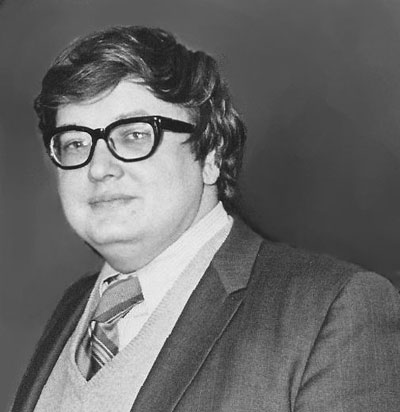Legendary US film critic Roger Ebert dies of cancer
 0 Comment(s)
0 Comment(s) Print
Print E-mail Xinhua, April 5, 2013
E-mail Xinhua, April 5, 2013
Roger Ebert, the legendary U.S. film critic who played a larger-than-life influence with film reviews at a time when television and internet are all the rage, has died. He was 70.
|
|
| Roger Ebert [File photo] |
Ebert, who was widely regarded as America's most prominent and influential film critic, succumbed to cancer after an 11-year battle with the deadly illness, the Chicago Sun-Times, for which he had worked for 46 years as a critic, confirmed on Thursday.
"Michelle and I are saddened to hear about the passing of Roger Ebert," U.S. president Barak Obama said in a prepared statement in remembrance of Ebert's death. "For a generation of Americans -- and especially Chicagoans -- Roger was the movies... The movies won't be the same without Roger."
As the first film critic to garner a Pulitzer prize in 1975, Ebert had been active during his career which spanned more than four decades. He had been instrumental in discovering and encouraging a large number of the-then newcomers including famous directors such as Steven Spielberg, Martin Scorsese and Oscar winners including Al Pacino.
Born to a Urbana, Illinois, electrician, Ebert launched his critic career in 1967 at the "Chicago Sun-Times." In 1975, Ebert and Gene Siskel -- the late "Chicago Tribune" critic -- paired to host a weekly film review television show "Sneak Previews" for the Chicago PBS station. In 1982, the pair started to host the Tribune Entertainment syndicated show "At the Movies" and rose to nationwide fame. In 1986, they left to create "Siskel & Ebert & The Movies with Buena Vista Television."
The duo's signature "thumbs up/thumbs down" review summaries became a major touchstone as whether a movie was successful or not. Applying a "relative, not absolute" approach, Ebert reviewed a film for what he felt would be its prospective audience, yet always with at least some consideration as to its value as a whole. He was also an advocate and supporter of Asian American cinema, famously coming to the defense of the cast and crew of Justin Lin' s Better Luck Tomorrow (2001).
Ebert struggled to cope with a time when Rotten Tomatoes and other on-line reviews aggregators drew a large number of readers from traditional print media, and he also resorted to Twitter to cater to the readers' needs.
Based on his long-time critic career, Ebert compiled a top ten list of all-time best films which included "2001: A Space Odyssey, " "Aguirre," "The Wrath of God," "Apocalypse Now," "Citizen Kane," "La Dolce Vita," "The General," "Raging Bull," "Tokyo Story," "The Tree of Life" and "Vertigo."
Aside from his critic career on the newspapers, Ebert also carried out critic duties on television for 31 years. His reviews were syndicated in more than 200 newspapers worldwide.







Go to Forum >>0 Comment(s)